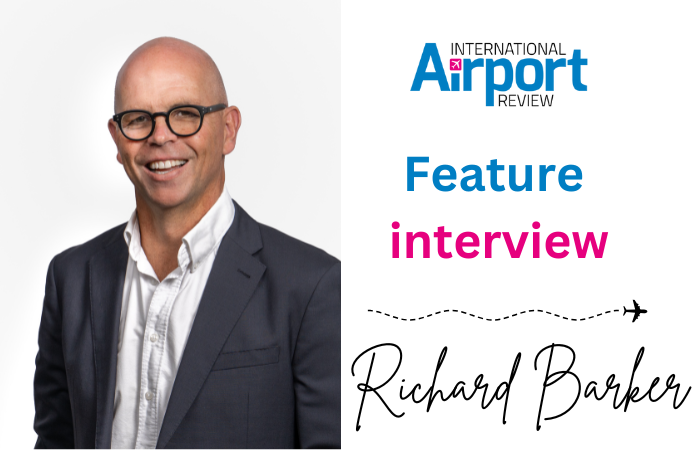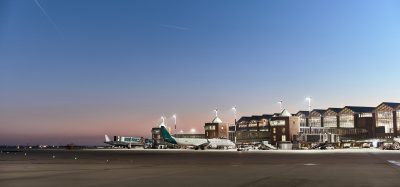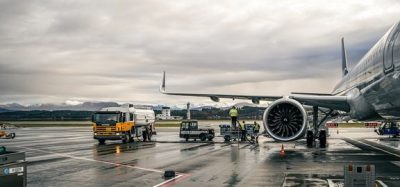Creating iron-strong airports for future growth: North Queensland Airports
Posted: 6 August 2025 | David McMullen | No comments yet
At Routes Asia 2025, Richard Barker, CEO of North Queensland Airports, spoke to International Airport Review about how the organisation is embracing sustainability, innovation and resilience to shape a vibrant, future-ready aviation gateway in tropical Australia.


North Queensland Airports (NQA), which operates Cairns and Mackay airports, has left COVID-era comparisons behind. For CEO Richard Barker, the focus now is on growth, resilience and purpose-led development.
“Domestic [traffic] was above pre-COVID numbers and recovered really strongly,” he said, “but due to some short-term capacity issues in the Australian network, we’ve dropped slightly… We’re now very much focused on the future and have put COVID behind us.”
Infrastructure expansion funded for long-term growth
In 2024, the Australian government approved an AU$155 million loan for expansion and upgrades at Cairns and Mackay Airports over five years.
Join our free webinar: Revolutionising India’s travel experience through the Digi Yatra biometric programme.
Air travel is booming, and airports worldwide need to move passengers faster and more efficiently. Join the Digi Yatra Foundation and IDEMIA to discover how this groundbreaking initiative has already enabled over 60 million seamless domestic journeys using biometric identity management.
Date: 16 Dec | Time: 09:00 GMT
rEGISTER NOW TO SECURE YOUR SPOT
Can’t attend live? No worries – register to receive the recording post-event.
At Cairns, this means a much-needed refurbishment of the international terminal (terminal 1), which will mark the first significant upgrade in 30 years. The works include an expansion of the terminal’s footprint, enhancing the departure lounge and baggage reclaim hall, upgrading the baggage handling and security systems, as well as improving retail space and washroom amenities. Taxiways serving the domestic and international terminals are also due for replacement because of their end-of-life status. Replacement overlays will increase airport capacity and support the projected growth for the next 15-20 years. New power cabling around the runway will also reduce maintenance downtime and ensure safe operations.
Cairns is also unlocking a new aviation precinct, which is going to create four new Code C stands and increase aero stand capacity. The second stage will establish three commercial lots, a heliport zone, and connecting access roads to create a general aviation precinct which will be above the 100-year flood level.
As part of the investment, Mackay Airport will be receiving a complete overhaul of its airside infrastructure, including a complete overlay of the entire runway.
The investment is forecast to create 505 jobs during construction and 1,497 jobs during operation.
Achieving carbon neutrality without carbon certificate offsets
One of the standout sustainability achievements for NQA is reaching carbon neutral status for Scope 1 and 2 emissions, all without offsets.
“Most of our Scope 2 – like many airports – is electricity. So, we’ve signed a long-term agreement for 100% renewable power,” Barker states. “We are fortunate that a significant portion of the land area, particularly Cairns, is in natural mangroves. Through carbon sequestration, we’ve been able to achieve this without having to buy carbon certificates. all while enhancing the environment.”
This was achieved in collaboration with traditional owners, whose stewardship of the land supported the environmental strategy and allowed them to achieve carbon neutrality on their scope 1 and 2 emissions ahead of many other airports in the region.
A globally rare sustainability-linked loan
The airport’s environmental ambitions are further reflected in a globally rare financial milestone, having secured the second sustainability-linked loan in the world. For those who are not familiar with these, “you effectively receive a modest interest rate deduction for worthy activities that enhance the natural environment,” explains Richard.
“In our case, we have carbon neutral targets, but what’s unique about our one is we are preserving three endangered species in our natural mangroves, which are near the airport.”
“We’ve put species rehabilitation plans in place and have worked with the traditional Aboriginal landowners to enhance these endangered species. Effectively, we are using the interest rate deduction to improve the natural habitat.”
His advice for other airports considering similar financing? “Understand what’s important to your stakeholders, what can you do in your local community, and then come up with some metrics that can help enhance that and put it to your bank. It was my team that developed the criteria and put it forward to the banks, and quite frankly, they bit our hand off! They all wanted to be in on it.” It is great to see that there is a real appetite from the banks to work with airports to decarbonise.
Real-world climate resilience put to the test
In December 2023, Cyclone Jasper triggered a 1-in-100-year flood, which, for the first time ever, went over the top of the airport’s flood banks and covered the entire runway.
“We had just updated and put into place our plans for how we were going to adapt to climate change when the Cyclone came. Like many airports, we are right on the coast, and so rising sea levels are something we had been considering, and unfortunately, we had a real live test!” says Barker.
This validation of their modelling has prompted accelerated investment. “We now have much more advanced flood monitoring equipment, and we have accelerated the building of the precinct I mentioned earlier. This is going to enable many of our business partners who are impacted by flood waters through their premises to relocate to higher ground effectively. If anything, the flooding has raised local awareness on the need for us to collectively take action and has added further weight when I go to the board seeking money for these kinds of investments. We now have first-hand experience.”
A strategic sale, but “business as usual”
NQA is currently up for sale and is rumoured to have attracted the interest of the Schiphol Group and VINCI, but Barker is keen to shield frontline staff and operations from disruption.
“In day-to-day operations it is business as usual. We’re continuing to invest. Our capital spending is close to record levels,” he says.
Investor interest is high, Barker notes: “Airport assets like this in an attractive market such as Australia and New Zealand, have exposure to the rapidly growing Asian middle class. It’s attracting interest from investors all around the world.”
Community impact and Indigenous partnerships
NQA sees itself not just as a transport hub but as a community contributor, especially for Indigenous populations.
“The two big things I’m really focused on are supporting education and employment,” Barker reveals. He highlights partnerships with Cape York House, which provides student accommodation, and with traditional owner-owned companies who maintain airport grounds and support operations.
“Some of them are entry-level roles that provide stepping stones and career pathways,” he added, also noting a collaboration with the Cairns Aviation Skills Centre to build technical career opportunities.
Elevating the region through events
NQA has renewed its five-year title sponsorship of Ironman Cairns, a globally acclaimed race, which is Richard’s passion.
“They love what we call a race in paradise,” says Barker. “We processed over two and a half thousand bikes. It’s a spectacular course which drives lots of visitation as the athletes often bring their family and friends. As the title sponsors, we get really good recognition and the whole community gets behind it.”
A future-focused vision
“Our purpose is to drive sustainable aviation growth for the benefit of our stakeholders and community,” Barker states.
Richard’s proudest achievement is the record levels of employee engagement at NQA. The key to this? “Define what you stand for and act strongly if there is behaviour that is not consistent with your standards.” NQA has won Airport of the Year in Australia from two different organisations for two years in a row.
And what would success look like for the future?
“I see myself as a short-term custodian for a long-term business. My goals are around succession planning and creating a strong, vibrant team to set the airport up for future growth and success.”


About the interviewee
Richard Barker was appointed as NQA’s Chief Executive Officer in December 2020, after joining the NQA Board of Directors in 2015. North Queensland Airports operate Cairns and Mackay airports.
Richard has extensive experience in the Airports, Retail and Energy sectors. His previous role was General Manager of Retail & Commercial at Auckland International Airport.
He is currently Deputy Chairman of Advance Cairns and a Director of TTNQ – Tourism Tropical North Queensland. He is a former Chairman and Director of several companies and trusts in New Zealand, across the commercial and non-profit sectors. He is a member Australian and NZ Institutes of Directors.
Richard has more than 30 years of global experience having worked and lived in New Zealand, UK, USA and Australia. Richard holds a BMS from Waikato University, NZ and a KMI from Kellogg Business School, Chicago.
The International Airport Summit is open for registration!
Date: 19 – 20 November 2025
Location: JW Marriott Hotel Berlin
At our flagship event of the year, we will dive into the future of airport operations, with expert-led sessions on passenger experience, innovative smart technologies, baggage handling, airside operations, data, security, and sustainability.
This is where global airport leaders come together to share insights, challenges, and real-world solutions.
Limited complimentary passes are available for eligible professionals – first come, first served!
Related topics
Airport construction and design, Airport development, Airport leadership, Social responsibility, Sustainability, Sustainable development


















